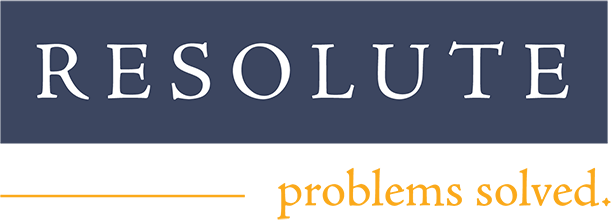It’s been one year since our lives turned upside-down due to the emergence of Covid-19. It’s been a time of adjustment and challenge, including lockdowns; recessions; toilet paper shortages; and thankfully, vaccines. As we continue to adjust to the new world we live in, here’s three things we learned over the past 12 months.
1) Impacted industries need to respond to their challenges immediately.
The signs of distress are easily discernable for those experienced in the turnaround space. Extending payables over 45 days; growing deferred maintenance to facility or property; quality issues with product and services; and departure of key staff are just a few signs that business troubles require immediate acknowledgement and action.
Lenders throughout the pandemic-induced recession have been very understanding towards businesses that explained their difficulties. It sounds simple, but truthful, transparent, and timely communication with lenders has paid off for many companies in turmoil.
It’s when businesses ignore their problems that true danger arises. Lenders are more likely to utilize liquidation measures or receivership when trust between parties is degraded. We’ve seen receiverships that have been avoided when there is honest communication and sound accounting put in place. Lenders are not the enemies of distressed business – they are partners to assist in the path forward.
2) New bankruptcy policies assisted small businesses.
It takes time for bankruptcy to reflect a down market – often years. While bankruptcy filings in 2020 declined, it’s important to remember many borrowers were able to utilize PPP funds and moratoriums on debt service payments. These borrowers may face stark challenges as the economy slowly but surely recovers.
Those who did file over the past year benefited from a recent change to the Bankruptcy code – Subchapter V. Designed specifically to speed up the filing process and protect small businesses, Subchapter V contains numerous protections, including continued ownership and management for equity holders, no disclosure statement requirement, no competing chapter 11 plans, and reduced fees.
To qualify for Subchapter V all debts, secured and unsecured, must be less than $2,725,625. The CARES Act of 2020 temporarily increased this cap to $7,500,000 in aggregate secured and unsecured non-contingent and liquidated debt.
The Resolute Index followed Subchapter V filings across Q3 and Q4 2020 across the entire Rocky Mountain West and discovered that middle market businesses often utilized this new option. 57% of filings in Q3 were in Subchapter V, while 47% in Q4 utilized this new process.
It’s important to note that the extended debt ceiling is set to expire on March 27. According to experts the Phoenix Business Journal spoke to, the expiration has the potential to trigger additional filings.
“My clients are all just sitting hoping that the deadline gets pushed because they don’t want to file any sooner than they have to, because maybe something wonderful is going to happen. But if something doesn’t happen by March 27, we’ve got a dozen cases that need to be filed.”
Lamar Hawkins, Guidant Law Firm
3) Remote work environments can work successfully.
Like so many companies across the nation, Resolute had to learn to cope with the new realities of lockdown and quarantine. While every business is unique in their ability to work from home, we successfully managed the “new normal” through communication and accountability.
After it became clear that a set location was not a necessity, new internal processes and policies were created to accommodate remote work. Expanded use of Microsoft Teams allowed our staff to take their work yet still keep in touch via email and work phone – without being tied to a physical desk.
Additionally, Resolute partnered with the University of Arizona to create a remote internship process with students studying at The Eller College of Management. This arrangement allows talented young individuals the opportunity to expand their skills and gain insight into the turnaround industry – while not being tied to the Phoenix metro area.
About the Author
Cece Roeder is Marketing Manager at Resolute. In her role, she manages marketing initiatives and activities, develops strategic plans and partnerships, and oversees the communications approach.

